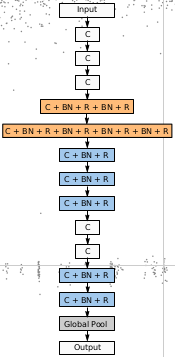Datalog is a popular query language with applications in several domains. Like any complex piece of software, Datalog engines may contain bugs. The most critical ones manifest as incorrect results when evaluating queries (query bugs). Given the wide applicability of the language, query bugs may have detrimental consequences, for instance, by compromising the soundness of a program analysis that is implemented and formalized in Datalog.
QueryFuzz implements the metamorphic testing approach for Datalog engines described in:
M. N. Mansur, M. Christakis, V. Wüstholz - Metamorphic Testing of Datalog Engines -
In Proceedings of the 29th Joint European Software Engineering Conference and Symposium on
the Foundations of Software Engineering (ESEC/FSE'21).
Installation:
Ubuntu/Debian:
Support for C++17 is required, which is supported in g++ 7/clang++ 7 on.
sudo apt-get install autoconf automake bison build-essential clang doxygen flex g++ git libffi-dev libncurses5-dev libtool libsqlite3-dev make mcpp python sqlite zlib1g-dev
git clone https://github.com/numairmansur/queryFuzz
virtualenv --python=/usr/bin/python3.7 venv
source venv/bin/activate
cd queryFuzz
python setup.py install
Usage:
Testing Soufflé:
You can immediately start testing Soufflé by just typing the following command:
queryfuzz
When you run this command for the first time, it will download and install Soufflé. We use Soufflé as our backend tool to compare and find discrepancies in the results of two Datalog programs. After successfully installing Soufflé, the above command will start the fuzzing procedure on the latest revision of Soufflé.
If you want to test a different version of Soufflé, please build and install that version and paste the path to Soufflé executable in the path_to_souffle_engine field in file /path/to/queryFuzz/params.json.
Testing µZ:
If you want to run queryFuzz on µZ, please first build and install the appropriate version of z3. Then paste the path to z3 executable in the path_to_z3_engine field in file /path/to/queryFuzz/params.json. You can then begin the fuzzing procedure by running:
queryfuzz --engine=z3
Testing DDlog:
If you want to run queryFuzz on DDlog, please first build and install the appropriate version of DDlog. Then paste the path to DDlog executable in the path_to_ddlog_engine field in file /path/to/queryFuzz/params.json. You would also have to add path to DDlog home directory in the path_to_ddlog_home_dir field in /path/to/queryFuzz/params.json. You can then begin the fuzzing procedure by running:
queryfuzz --engine=ddlog
Want to test your own Datalog engine?
If you want to use QueryFuzz to test your own Datalog engine, please get in touch at [email protected].
Running on multiple cores:
If you wish to run parallel instances of Queryfuzz on n cores, use the --cores flag. For example:
queryfuzz --cores=n
Reproducing query bugs reported in our ESEC/FSE'21 paper:
Please follow the instructions here.





